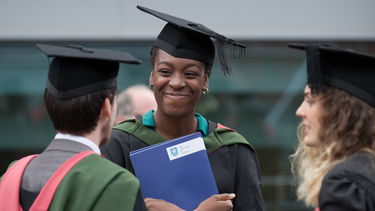Undergraduate
In the School of History, Philosophy and Digital Humanities, we explore the human experience so that we can understand the issues and concerns of the past, present and future. Choose from our wide-range of single and dual honours degrees.
Study with us

Why study with us
From our expert tuition on a wide-ranging and flexible choice of modules, to an active student community in a vibrant, friendly city, we list our top ten reasons to study with us.
Top 10 reasons to study with us







